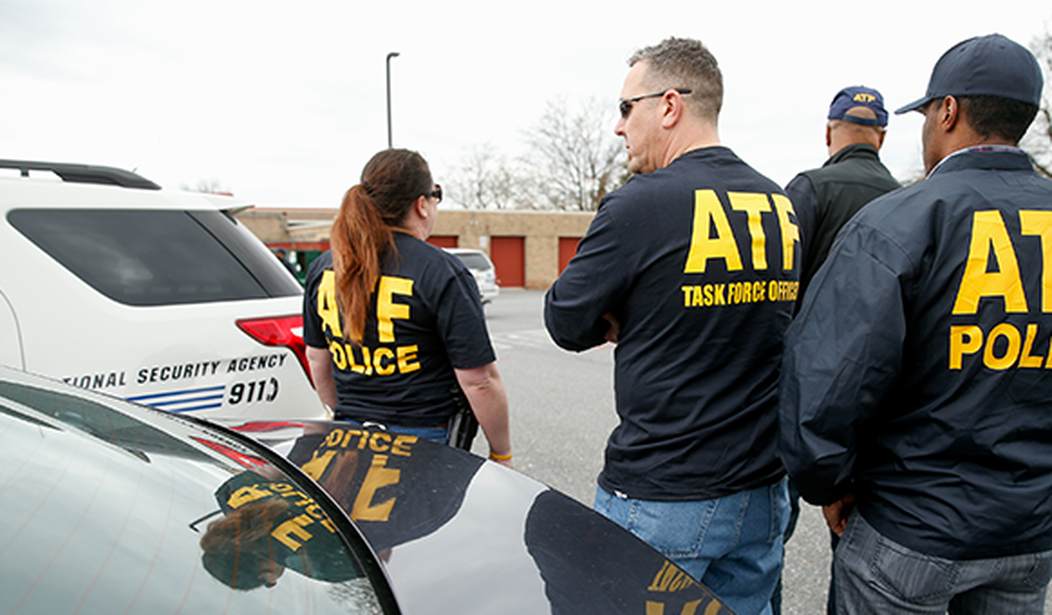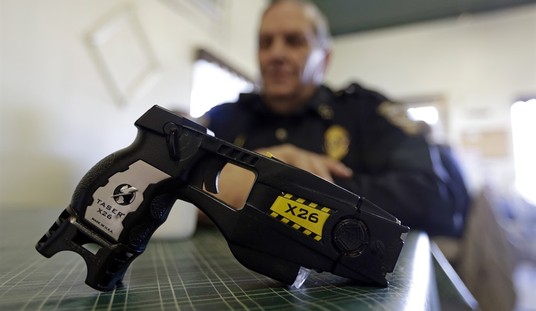We’ve had to contend with a continual onslaught of shenanigans from the ATF since pretty much their inception. Things have gotten worse and worse in recent years. In the semi-distant past – not really that distant – the ATF has shot dogs and murdered suspects during stand-offs, but in 2023, for the first time ever, a seated ATF Director attended the National Shooting Sports Foundation SHOT Show to give a talk…that does not mean the agency has our best interests in mind. The ATF not having been embroiled in acts of domestic terrorism via botched operations recently is only indicative of them being more cautious than they have been in the past. Recently the ATF sent out an open letter concerning so-called “solvent traps” and it’s interesting.
Our friends over at the NSSF alerted subscribers of the letter’s content to inform people about the guidance document. The following excerpts from the full letter were shared with industry members.
The Bureau of Alcohol, Tobacco, Firearms and Explosives (ATF) recently examined devices commonly marketed as “solvent traps” and has determined that some of them are “firearm silencers” as defined in the Gun Control Act (GCA) and as defined in the National Firearms Act (NFA). “Solvent traps” are marketed as devices that attach to firearm barrels to catch excess solvent used when cleaning firearms. ATF has not classified any device as a “solvent trap,” because that term does not exist in the relevant Federal statutes or implementing regulations. However, ATF has classified numerous devices as “firearm silencers,” even though they are marketed as “solvent traps.”
…
The “solvent trap” devices that are silencers cannot be registered in the National Firearms Registration and Transfer Record (NFRTR) by an individual purchaser. Specifically, the NFA, 26 U.S.C. § 5841, mandates that the “manufacturer, importer, or maker shall register each firearm he manufactures, imports, or makes.” Therefore, it is unlawful to manufacture “firearm silencers” for transfer to individuals who have applied to make that same firearm by filing an ATF Form 1. These firearms have not been registered by the manufacturer by the close of the next business day after manufacture in compliance with federal regulation. 27 CFR 479.103. An NFA firearm that has already been made/manufactured in violation of the NFA may not be registered by the current possessor.
…
Current possessors of these purported “solvent traps” that are silencers are encouraged to contact ATF for further guidance on how they may divest possession. If you are uncertain whether the device you possess is a “firearm silencer” as defined by the GCA and NFA, please contact your local ATF Field Office. You may consult the Local ATF Office’s webpage for office contact information.
There’s a lot to this excerpt as well as the letter in entirety. Reading it over reminds me of my coverage last year of “Operation Reticent Recall.” That coverage involved letters going out from the ATF about forced reset triggers, as well as attorney Dillon Harris’ sharing of information from clients about solvent traps and “Interview Questionnaire[s]” some of them received. Reading from the list of questions Harris provided from the source documents – which were not shared in full – there are some interesting and very entrapping queries. Harris noted that the name of “Operation Reticent Recall” was leaked via the questionnaires and observed:
“Operation Reticent Recall,” a name we learned from the top of an “Interview Questionnaire” that has been sent to some of our clients. Not sure if the agency as a whole would be happy about that, because it appears to be a quick guide for an agent’s questioning, but nonetheless, it seeks information regarding “solvent traps,” “solvent trap parts and accessories,“ and “Forced Reset Trigger[s],” with questions like:
- How did you learn of/locate the seller
- What was your payment method
- How was the package labeled
- What was the intent/purpose behind purchasing the item(s)?
- Was the “solvent trap” drilled out prior to receipt? If upon inspection the “solvent trap” is drilled out, ascertain by whom it was drilled and when.
- Did the seller indicate that an approved ATF Form 1 (Application to Make and Register a Firearm) was required prior to purchasing/receiving the item or otherwise state that receipt/possession of the item(s) was governed by provisions of the National Firearms Act?
- Are you aware of other persons (or have you referred other persons) who have purchased similar items from the seller (if so, please attempt to identify the additional parties)?
The ATF questioning alleged purchasers about notification from sellers is interesting. One of the questions seems to tie directly into the guidance document issued on November 20, 2023.
Did the seller indicate that an approved ATF Form 1 (Application to Make and Register a Firearm) was required prior to purchasing/receiving the item or otherwise state that receipt/possession of the item(s) was governed by provisions of the National Firearms Act?
Feels like mixed signals.
The ATF letter also indicated that if people have questions about their items or any content in the letter that they should contact the ATF. This invitation to make the ATF’s fishing expedition staged in a barrel should be only accepted after receiving some solid legal counsel. This echos Harris’ 2022 warning:
As it appears ATF is taking a more aggressive approach to solvent traps and FRTs, remember that you should not speak to ATF or any other law enforcement without an attorney, and you should NEVER consent to any searches.
If you or someone you know has been contacted by ATF or is seeking advice relating to Forced Reset Triggers and would like to speak with an attorney about your rights and obligations, contact us today!
The takeaway? If you’ve read the letter and some of it speaks to you, call an attorney. If you have yet to stumble upon it, do give it a solid read and make sure nothing in it is applicable to you and your situation. As always, it’s best to be on the right side of the law, and if there’s any doubt or stutter steps, shut up and lawyer up, as Mike G. in the Morning would say!








Join the conversation as a VIP Member